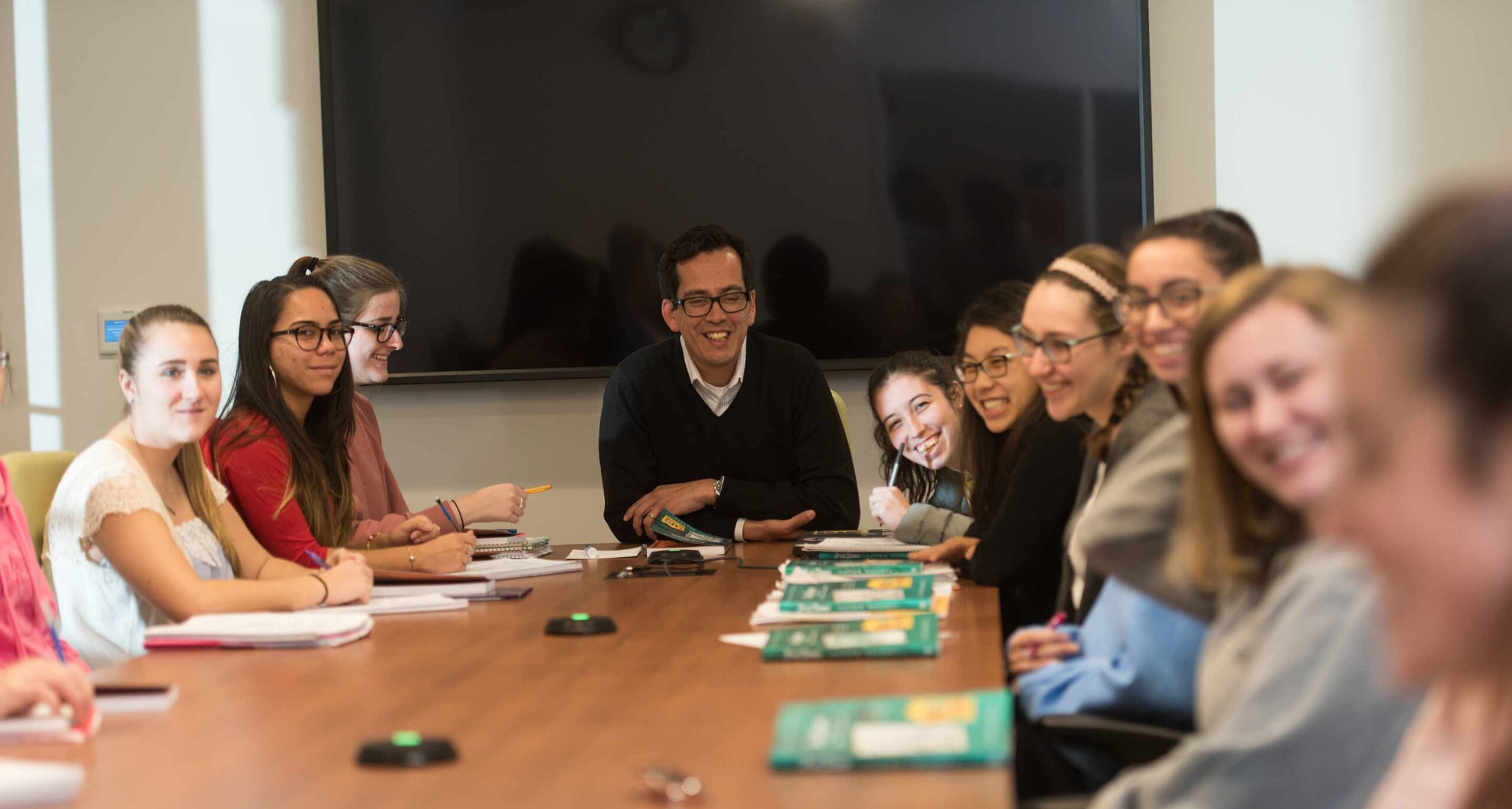Why Study a Foreign Language?
We believe that it’s not enough to be fluent in a language—you must also understand the people who speak it: their history, their traditions, and their culture. Studying a language at Assumption means learning how to communicate effectively, yes, but it also means immersing yourself in different regions of the world. You will explore the history, literature, arts, and customs of other cultures. Through broadening your horizons, you will become more open-minded, a standout job candidate, and a better citizen.
Taught by a dynamic faculty, our courses in French, Italian, Latin, and Spanish are small and interactive. In addition to speaking and reading the language in class, students watch films, make videos, listen to songs, and even play games to gain language facility and an appreciation of the culture.
The study of languages helps you improve your oral and written communication skills, and also expands your capacity for critical thinking and examination. In fact, the type of analysis you perform on texts and films in your chosen language will help you in any future career, from lawyer to teacher to business professional.
Assumption University offers a major and minor in Spanish and minors in Italian Studies, the Italian Language, and Latin American Studies. Students who wish to teach Spanish double major in Spanish and Education. In addition to our majors and minors, courses in French and Latin are offered at the beginning and intermediate levels each semester. Advanced-level French and Latin courses are taught according to student interest and demand, sometimes as Independent Studies.








